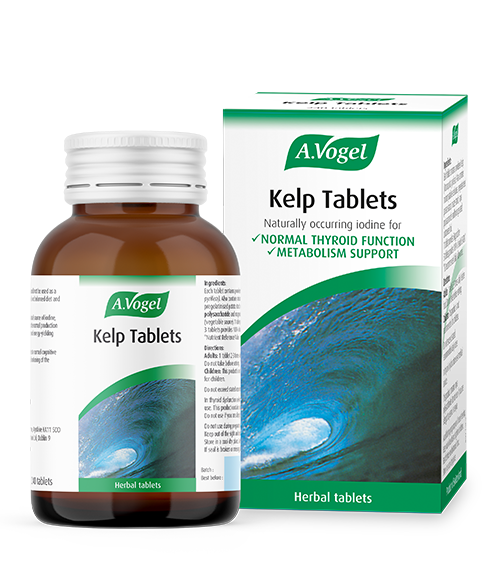How does exercise improve your immune system?
A recent study showed that a group of very active individuals aged between 55 and 79 years old had immune systems to rival that of a 20-year-old.1 This suggests exercise is very good for the immune system; but what is it that makes this so?
Well, exercise is thought to be of benefit to the immune system for several reasons, such as:
- It boosts defences against viruses and bacteria
- Improves sleep
- Reduces stress.
Find out why these factors are so important for immune health here.
1. Exercise boosts defences
One of the key reasons exercise is thought to boost immune health is linked to the fact it helps support the production of white blood cells, most notable of which are T Cells. These can identify viruses and bacteria and bind to them in order to kill them off. It's a defence mechanism that works fairly well in keeping the body free from the likes of colds and flu.
Additionally, exercise is really good for improving our circulation, meaning white blood cells are able to move more easily around the body.2 This means they are better able to reach pathogens and viruses and tackle infection.
Both of these factors may explain why some research shows exercise can reduce the risk of developing upper respiratory tract infections. This includes symptoms such as a sore throat, sinusitis and congestion.3
Some research also suggests that high-intensity training could actually boost the production of white blood cells more than moderate level workouts.4 Therefore, it may be a good idea to incorporate some intense activities into your routine.
This could be sprints or even a 20-minute HIIT workout. The latter involves doing 30 seconds of intense cardiovascular activity followed by 30 seconds of rest as shown below.
HIIT workout:
- 2-minute warm-up
- Push-ups – 35 seconds
- Rest – 25 seconds
- Mountain climbers – 35 seconds
- Rest – 25 seconds
- Squats – 35 seconds
- Rest – 25 seconds
- Leg and arm punches – 35 seconds
- Rest – 25 seconds
- Jumping jacks – 35 seconds
- Rest – 25 seconds
- Burpees – 35 seconds
- Rest – 25 seconds
- 2-minute cool down
Repeat.
Remember, though, any exercise is good exercise so don't be too concerned if you aren't up to doing a speedy run or a HIIT workout! Just getting your body moving is a positive step.
2. Exercise improves sleep
If you've ever done any kind of physical activity that is a little out of your usual routine you may have found that sleep comes easily that evening. By simply using up our energy stores, exercise can improve sleep quality. It also helps burn off the adrenalin and adrenalin by-products that we produce when stressed, which can counter good sleep.
Sleep is really important for immune health, partly because cytokines are produced at this time.5 Cytokines target infections and inflammation, helping to keep the immune system working efficiently.
There's also research to show that sleep can help the body create T cells. These, as we've just seen, can help the body to fight off pathogens like viruses and bacteria.6
3. Exercise reduces stress
Exercise is good for the mind in a number of ways. It can improve mood and make us more alert, plus it reduces stress by releasing positive hormones called endorphins.
Stress is detrimental to the immune system in several ways. Firstly, it reduces the production and distribution of new lymphocytes which are white blood cells involved in the body's immune response. This weakens our ability to deal with invading viruses and bacteria meaning we become more vulnerable to colds and flu, plus it can also be harder to shift an infection if one does take hold.
Additionally, glucocorticoids are produced during the stress response which inhibits the release of interferons and interleukins. These help to regulate the immune response and so without them, lymphocytes are less active against infection. Glucocorticoids can also kill off lymphocytes directly, particularly if stress persists long term.
Habits associated with stress, such as unhealthy eating and poor sleep routines, can further impact the immune system. I've explained why good sleep is essential for maintaining a well-functioning immune system, but diet is also important. Stress-relieving nutrients like magnesium are found in fresh foods like spinach that we may be less likely to choose when stressed. At this time, convenient and comfort foods are usually the order of the day; but, unfortunately, these are unlikely to contain the nutrients our body needs to calm our stress response.
So, add a little more exercise to your daily routine and see if you feel calmer for it.
Exercise tips
To help you get the most out of exercise and ensure your immune system reaps the benefit, my main advice is as follows.
Start out slow – if you are new to exercising, doing too much too quickly can leave you feeling fatigued and run down. Break into exercising slowly so you are less likely to feel these effects.
Warm-up and cool down - sometimes exercise can bring about cold and flu-like symptoms such as aching muscles. Stretching before and after a workout warms up and cools down the muscles to reduce the likelihood of this happening.
Don't exercise on an empty stomach – it can be especially hard to get through a workout if you aren't fuelled up properly. It is a good idea to consume slow-releasing carbohydrates about 30-60 minutes before the activity to see you through it. These include wholegrain cereals, brown rice, sweet potatoes and lentils.
Rehydrate afterwards – replace fluids lost through exercise by (slowly) drinking a big glass of water afterwards. Additionally, mixing your water with our Balance Mineral Drink will help to replace lost electrolytes. This strawberry-flavoured drink contains nutrients including magnesium, calcium, vitamin D and potassium to support you at this time.
Read my blog 'Easy ways to exercise at home' for easy-to-follow workouts you can do in the comfort of your own living room!









